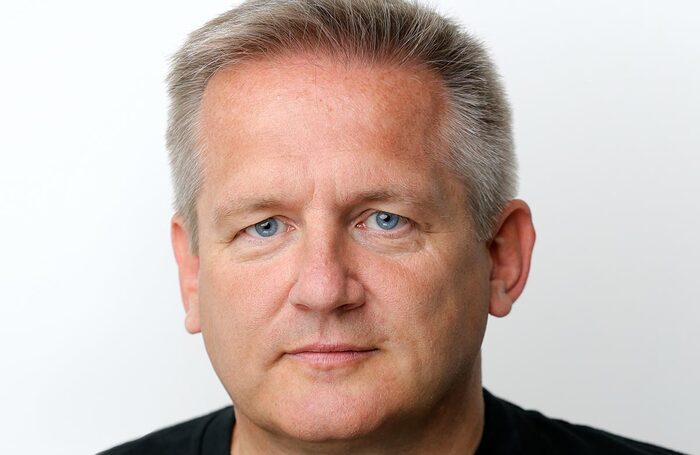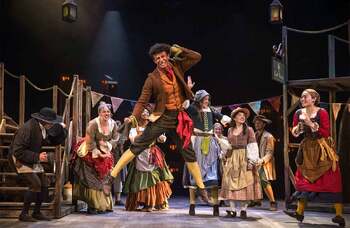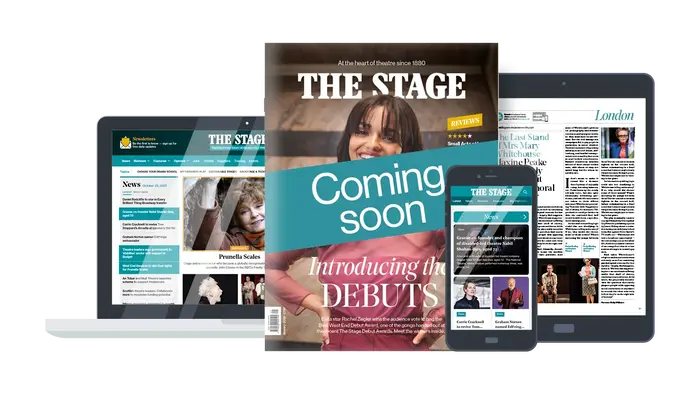Paul Duddridge: 'Landing major roles is simple. There is a knack to it. And that knack can be taught'
Acting coach Paul Duddridge worked in comedy, helping acts such as Rob Brydon, Phil Jupitus and Michael McIntyre become household names before he moved to Hollywood to share his techniques. He explains how his method of teaching cuts through the artifice to put the uniqueness of each performer centre stage
Most actors already have what it takes to become successful, according to director, producer and acting coach Paul Duddridge – they just don’t know it. They have all the ability and appeal they need to shine on screen, but make life hard for themselves with irrelevant acting techniques and convoluted performance methods.
“When it comes to acting for film and television, almost everyone is always overcomplicating things,” Duddridge says. “The truth is that looking good on screen, and landing major roles in movies and series as a result, is relatively simple. There is a knack to it, and that knack can be taught.”
The knack is not taught on three-year drama school degrees that cost tens of thousands of pounds, Duddridge continues, and it is not taught by failed-actor-cum-acting-gurus with old-fashioned approaches to performance. If that were the case, he asks, how could the stellar careers of untrained athletes-turned-actors Dwayne Johnson, Vinnie Jones and Jason Statham be explained?
’The real secret is in learning to be yourself on camera’
“The trouble with all that coaching is that it puts layer upon layer of artifice in between the actor and the audience, when the real secret to screen acting is in stripping away all that fakeness,” Duddridge explains. “The real secret is in learning to be yourself on camera. It is in leaning towards what makes you unique as a person. It is in vibrating at your own frequency. And I help with that.”
Duddridge openly admits that his no-nonsense approach to acting can sound slightly too good to be true, but he does know what he is talking about. He started his career as a comedy manager in the UK, and is responsible for discovering and developing Rob Brydon, Phil Jupitus and Michael McIntyre into the household names they are today.
In 2007, he moved to California, where he directed the acclaimed 2016 movie Mothers and Daughters, as well as working as head of television at innovative digital TV startup TV4 Entertainment. Over the past decade, he has offered his advice through in-person and online consultancy Entertainment Coach.
’The people who coach performance in Hollywood have never succeeded themselves, so they don’t know what it takes’
“There are two industries in Hollywood,” Duddridge says. “The first is making movies and TV shows. The second is teaching people how to get into the first, and it is 99% nonsense. The people who coach performance have never succeeded themselves, so they don’t know what it takes. You wouldn’t learn heart surgery from someone who has never done heart surgery, would you?”
Duddridge, on the other hand, is in the 1%. He knows exactly what it takes. He has worked for decades at the top level of the entertainment industry on both sides of the Atlantic. He has turned jobbing acts on the UK comedy circuit into international stars. He has coached out-of-work actors who have gone on to land major roles in massive films and TV series.
“Just recently, I coached an actor whose last big job was 10 years ago, and whose last credit of any kind was three years ago,” Duddridge says. “We worked together for six sessions. I gave him instruction on how to tone down all the overwrought acting techniques he was doing. He’s just landed the lead part in an Amazon TV series being announced soon.”
Duddridge offers everyone that contacts him for coaching a free 30-minute consultation to discuss their issues and their ambitions. After that, there are two possible coaching courses – a day-long, group session costing $150, or a two-month programme of individual, bi-weekly sessions costing $1,500.
“There is no pressure at all to commit to coaching after the consultation,” he says. “I don’t mess people around. I don’t give people the hard sell. You will never hear from me again if you don’t want to. If you do want to continue with the coaching, though, then I will give you all the advice I have got to help you get where you want to go.”
There are three key areas to achieving success in the entertainment industry, according to Duddridge – ability, opportunity and attitude. Having the right attitude is easy, he says. “It boils down to being flexible, staying humble and not being an arsehole who nobody wants to work with.”
Opportunity is slightly trickier – and much trickier than it was 10 years ago. Increasingly, it is not about waiting for the phone to ring but going out there and making your own material anywhere you can – on stage, on screen, or on social media – instead. “You only need a smartphone to start making a name for yourself these days,” he says.
Ability is the simplest thing to master: the simplest, but also the hardest. The delusion that most actors are under, says Duddridge, is that they have to change to be successful. The truth, he says, is that the opposite is true. Success comes when actors are willing to emphasise their own innate characteristics and charisma.
“Why is it that so many old Etonians and Oxbridge-educated people go on to become famous actors and entertainers?” he asks. “It is definitely not because they are the most talented or the most technical. It is because they have had the confidence to be themselves instilled in them from an early age.”
’Whatever it is that makes you unique, go with it’
It is a confidence, continues Duddridge, that anyone can learn. “Whatever it is that makes you unique, go with it,” he advises. “I really believe that everyone is interesting, and everyone is attractive, and if they have the confidence to lean into that, they will be interesting and attractive to directors, to casting agents, and to audiences, as well.”
“Take Rob Brydon,” he adds. “I first met Rob in the 1990s at an open mic night. He was doing a Mid-Atlantic thing instead of pushing his Welshness. I told him: ’No let’s double down on it instead, Let’s make you the Welshest comic on the circuit.’ That’s exactly what we did, and look at him now.”
“If you have an accent, go big on it,” he concludes. “If you are short, don’t fight it, embrace it. If you are tall, don’t wear flats, wear six-inch heels. Be the tallest person in the room.”
To book a free one-to-one with Paul Duddridge, visit calendly.com
The Big Idea
The Big Idea
Most Read
Across The Stage this weekYour subscription helps ensure our journalism can continue
Invest in The Stage today with a subscription starting at just £7.99




